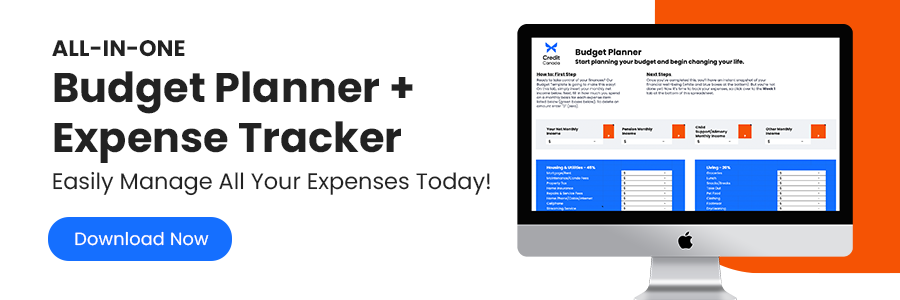
The Immigrant's Guide to Credit
One of the most important things for new immigrants to learn is how Canada’s credit system works and how to build credit wisely. Even just knowing the ins and outs of how to use credit cards can be a huge advantage in helping build a healthy financial life.
Canada is a great place to live, and the data speaks for itself. In 2021, Canada's population climbed to 37 million, with immigrants accounting for 80% of that increase. That figure has positioned Canada as the fastest-growing G7 country in the world (a group that includes the United States, Britain, Germany, France, Italy, and Japan).
What Should Immigrants Know About Credit?
Credit is a tool, and just like any tool, it can be misused without proper instruction.
You receive credit when you borrow money based on a promise (agreement) to repay the money at a later date, or when you purchase something you promise to pay for at a later date.
A credit agreement involves:
- A Lender (Creditor). A person, bank, or company that provides you with credit (loans you the money).
- A Borrower (Debtor). The person who borrows the money and who owes the creditor (lender).
What Are the Different Types of Credit?
There are different types of credit and the most common type is revolving or recurring credit, such as credit cards.
Revolving credit allows you to borrow up to a certain spending limit on an ongoing basis. As the borrower, you make regular payments in varying amounts to the lender depending on your account balance.
Lenders typically require a minimum payment they expect you to pay every single month, on time, until the balance is paid in full. Ideally, you want to pay the balance in full and on time every single month. However, if this isn't always possible, it's important to pay at least the minimum monthly payment on time every month.
Other types of credit include open accounts, such as lines of credit, installment loans (i.e., car loans and student loans), and mortgages.
What Is a Credit Report?
A credit report is a summary (or snapshot) of your credit history. It's one of the main items lenders use to decide whether or not to grant you credit.
Your report is created when you first borrow money or apply for credit through a financial institution or a retail store (when you apply for a “store credit card”). Also, when you open an account with a cellphone provider.
These banks, retailers, and service providers gather information about the financial transactions they have with you and they report this information to one or both of Canada’s credit-reporting agencies (also known as credit bureaus), Equifax Canada and TransUnion Canada.
How Do I Access My Credit Report?
You can obtain your credit report through Equifax Canada and TransUnion Canada. It's a good idea to check your credit report from both credit bureaus, as sometimes the information recorded by each credit bureau can be slightly different.
Your credit report summarizes whether you have been keeping up with your payments to your creditors and lenders as agreed.
Your credit file or credit report can be viewed not only by lenders and retailers but also by other entities and organizations, such as potential employers, landlords, and insurance companies.
Your credit report can contain facts about:
- When you opened your accounts
- How much you owe
- Whether you make your payments on time
- If you miss payments or have missed payments in the past
- Whether you go over your credit limit
- How you manage your payments to some service providers
- Bank account closures due to money owing or fraud
What's the Difference Between Credit Scores and Credit Reports?
A credit score is a 3-digit number between 300 and 900 that represents your creditworthiness to lenders and creditors.
This number summarizes the information reported to credit bureaus. (And you can have more than one credit score.) The higher your credit score is, the better. According to most experts, anything above 660 is considered a good credit score.
Your credit score is not included in your credit report; however, it's simple to obtain from either Equifax Canada or TransUnion Canada. Also, many of Canada's major banks offer their clients free access to their credit scores via online banking. You can also sign up to receive your free credit score with services like Borrowell and CreditKarma.
What's the Difference Between Credit Ratings and Credit Scores?
Each credit item (or debt) on your credit report has a credit rating, and that rating is made up of a letter (i.e., R, I, O, M) and a number between 0 and 9. The letter represents what type of credit it is (i.e., revolving, installment, open, or mortgage) while the number represents how well you're keeping up with your payments for that debt.
A credit rating highlights your payment history for a specific debt (such as a credit card, line of credit, car loan, or mortgage). For example, if you had a credit card and you made your payments on time every single month, your credit rating for that credit card would likely be an R1 — the best credit rating you can have.
Meanwhile, a credit score is an indication of how likely you are to repay your debts based on your past actions for every credit item on your credit report. Your individual credit ratings for each debt are reflected in your credit score, among other factors (such as payment history, credit utilization, credit diversity, number of hard inquiries, etc.).
How Do I Obtain Credit?
Creditors in Canada offer credit (personal loans, credit cards, lines of credit, etc.) based on an individual’s credit history (which is summarized in their credit report) and credit score.
Having good credit is crucial for borrowing money from banks, leasing a car, renting an apartment, buying a home, and so on. It's also important for qualifying for lower interest rates and better insurance rates.
Unfortunately, our credit histories don't move with us when we move to new countries. So, while someone new to Canada might have had a stellar credit history and credit score back home, they will need to build a new positive credit history in Canada once they arrive.
How Do I Build Good Credit in Canada?
Most people in Canada use credit cards for convenience and to earn rewards. In fact, there were 76.2 million credit cards in circulation in Canada in 2021. While most Canadians (70%) pay their credit cards off each month to avoid interest fees, some do not and this can lead them down a dangerous debt path.
For new immigrants in Canada, it can be even more tempting to make all purchases on credit when cash is low. While we’d like to recommend avoiding all credit cards at first, immigrants in Canada also need to build their credit. And, one way to do that is with a credit card or secured credit card.
Once you’ve obtained a credit card (many banks will work with immigrants in Canada to help them obtain one) be sure to pay the balance off in full each month to avoid fees.
Learn more about using credit cards responsibly or about how credit cards work to make the best use of credit in Canada.
Other helpful tips for building credit include:
- Always pay your bills on time
- Do not apply for a lot of credit in a short period of time (this will lower your credit score)
- Use less than 30% of your available credit
- Do not miss payments to your creditors or lenders
- Do not bounce cheques (issuing cheques when there are insufficient funds in your bank account)
- Have a cellphone/mobile phone account in your name and pay the monthly bill on time and in full
A Word of Caution: Avoid Fraud and Scams
Fraud and scams don’t discriminate. Every country has them, and Canada is no exception. Of course, immigrants in Canada can be easy targets as they’re still learning Canada’s financial system and perhaps even the language. So, learning how to avoid fraud and scams is very important.
A loan scam is perhaps the most common type of scam for immigrants to fall victim to. After all, many immigrants don’t have credit, so access to cash is limited. Therefore, a loan can be very appealing and scammers know this.
Most loan scams ask for an upfront fee with the promise of a loan. Of course, the loan money never comes but the upfront fee is gone forever. Thankfully, there are some signs that the loan you’re being offered is a scam.
Be wary if you receive a loan offer with any of these red flags:
- No credit check needed or “guaranteed approval” promised
- Aggressiveness or sense of urgency
- Requiring upfront payment
- Asking for unusual payment method (e.g., wire transfer, Bitcoin, or gift card)
- Loan approvals that you never applied for
- Incomplete contracts (or no contracts)
- Negative online reviews (or no online reviews)
Need Help? Credit Canada Is Here for You!
Moving to a new country is exciting… and scary. And, we know many new immigrants might have questions about their finances and credit. Fortunately, non-profit credit counselling in Canada is a great way for anyone to learn the ropes.
Speaking to a certified credit counsellor from a not-for-profit credit counselling agency can help, whether it’s to build credit, save more, become debt-free, or all of the above. One thing we always hear from clients is they wish they would have called us sooner, so get in touch with us today!
Our non-profit credit counsellors will listen with an empathetic ear, help you navigate confusing financial matters, and help you manage your credit card payments and debt.
Contact Credit Canada’s caring credit counsellors today. It’s 100% confidential and our counselling is completely free!
Frequently Asked Questions
Have questions? We are here to help
A Debt Consolidation Program (DCP) is an arrangement made between your creditors and a non-profit credit counselling agency. Working with a reputable, non-profit credit counselling agency means a certified Credit Counsellor will negotiate with your creditors on your behalf to drop the interest on your unsecured debts, while also rounding up all your unsecured debts into a single, lower monthly payment. In Canada’s provinces, such as Ontario, these debt payment programs lead to faster debt relief!
Yes, you can sign up for a DCP even if you have bad credit. Your credit score will not impact your ability to get debt help through a DCP. Bad credit can, however, impact your ability to get a debt consolidation loan.
Most people entering a DCP already have a low credit score. While a DCP could lower your credit score at first, in the long run, if you keep up with the program and make your monthly payments on time as agreed, your credit score will eventually improve.
Anyone who signs up for a DCP must sign an agreement; however, it's completely voluntary and any time a client wants to leave the Program they can. Once a client has left the Program, they will have to deal with their creditors and collectors directly, and if their Counsellor negotiated interest relief and lower monthly payments, in most cases, these would no longer be an option for the client.

